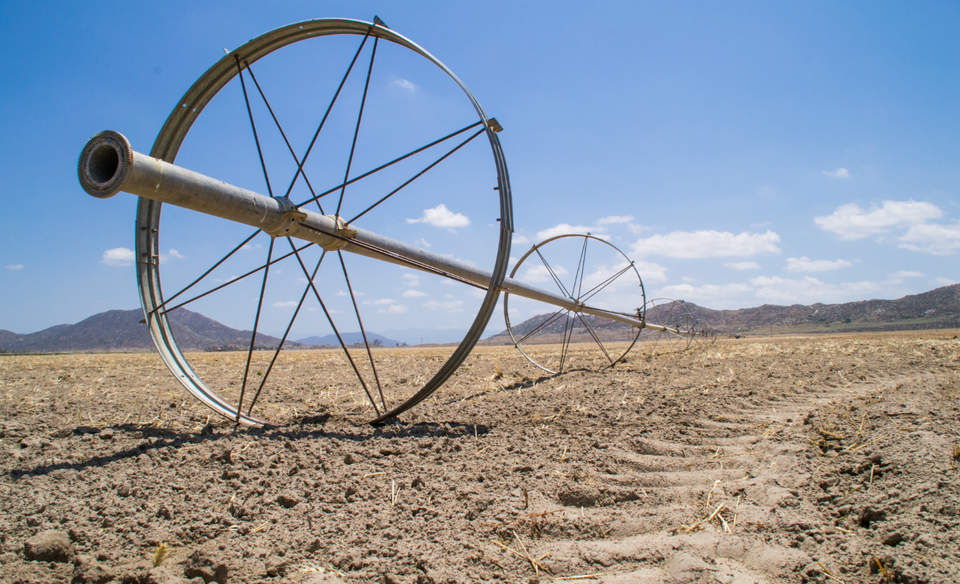Farmers maintain optimism for spring seeding despite winter drought

Snowfall is far below average this season on the Prairies, where old man winter can often arrive as early as Thanksgiving. But the lack of moisture isn’t dampening the spring outlook for sixth-generation farmer Ian Boxall
by David Baxter – Global News
“We’ve never lost a crop in January yet. So, I think there’s lots of time to get snow in Saskatchewan,” Boxall told Global News from his farm near Tisdale, Sask.
“Let’s be optimistic about this year’s crop coming up and that we’ll get the moisture we need to get the reserves back and get the dugouts full and we’ll go into spring in good shape.”
In the coming spring, Boxall plans on growing wheat, canola, canary seed and lentils – all common crops to see sprouting in Saskatchewan fields.
“We went through a cold snap and then a heat dome that one year, and then last spring it was 30-plus degrees, so, I don’t know, it’s hard to say what the future is going to hold”On top of running his family farm in the northeastern part of the province, Boxall also serves as president for the Agricultural Producers Association of Saskatchewan.
Boxall says there was good rainfall in November across much of the province, which helped with the seasonal ground moisture. Even with the lack of significant snowfall, he says he won’t be too worried about ground moisture unless the current conditions stretch into March.
“Are we a little concerned about the lack of snow? Sure. But there’s lots of time for us in Saskatchewan to get snow. We get some heavy wet snow in March, it’ll make up for the other months when we didn’t have any,” Boxall said.
Drought across Canada
The dry winter is a national phenomenon. According to the Canadian Drought Monitor, as of November 30th 72 per cent of the country was under abnormally dry to moderate or exceptional drought conditions. This includes 81 per cent of the nation’s agricultural land.
Environment and Climate Change Canada senior climatologist David Phillips said this is an unseasonably warm winter, punctuated by brief polar vortex periods.
“Winter has not happened yet, and here we are, the days are getting longer. We’re clearly not at the dead of winter. We still have a month to go. Clearly, we could see changes coming. January and February are usually the coldest months, not December,” said Phillips in a Dec. 28, 2023 interview. “I think nature is showing its personality, its character right now.”
Adapting to unpredictability
Nature’s personality is less temperamental on the East Coast this year, according to Nova Scotia Federation of Agriculture president Allan Melvin. He says that while it’s been “abnormally warm”, precipitation has been normal.
“We’re certainly not in a drought-like situation that we’re seeing elsewhere across the country right now,” Melvin said.
Melvin farms vegetables in the Annapolis Valley region and is hoping for a more stable growing season this year. He says last spring brought a drought to Nova Scotia, which was followed by heavy rains through the summer and fall.
With the El Niño weather pattern bringing variability to weather patterns, Melvin says producers need to be prepared for volatility exacerbated by climate change.
“That’s the big question mark, and that’s what is seemingly making our production a lot more challenging year over year,” Melvin said. “That’s sort of the trend line that we’re seeing, is we’re getting these major weather events that can cause crippling situations in various commodities.”
Some of the ways he says farmers are adapting to increasingly unpredictable weather include adjusting land management practices, doing more covered growing and irrigating fields that they previously didn’t.
Mani Gill is a fruit farmer in the Okanagan and his orchard endured cold snaps over the last two winters, but now he’s facing very mild conditions.
“I don’t know if this is the new norm where we’re going to have different extremes with different weather. We went through a cold snap and then a heat dome that one year, and then last spring it was 30-plus degrees. So, I don’t know, it’s hard to say what the future is going to hold,” Gill told Global News.
Right now, Gill says the biggest issue his orchard faces is the drought. He relies on the snowpack to fill reservoirs for irrigation in the spring.
A former Member of Parliament for Regina and federal cabinet minister, Ralph Goodale is Canada’s high commissioner in the United Kingdom











